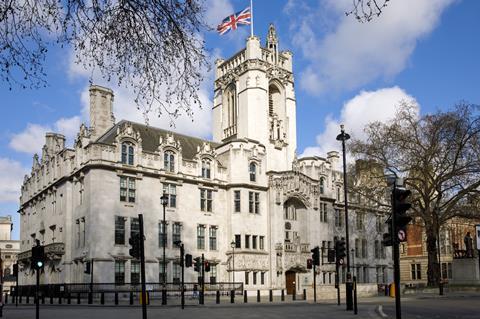The Supreme Court has allowed the appeal in a multibillion-pound divorce case, clarifying the law governing financial remedies. In Potanina v Potanin, judges found by a majority verdict of three to two that current practice was ‘contrary to the applicable rules of court and to a fundamental principle of procedural justice’.
The case, described as a ‘dystopian situation’ by Lord Leggatt, with whom Lord Lloyd-Jones and Lady Rose agreed, centres on Natalia Potanina and Vladimir Potanin, who married in Russia in 1983. Their marriage was dissolved in Russia in 2014.
The husband accumulated a ‘vast wealth, estimated…[at] around $20bn’, almost all of which is held in trusts and companies. The Russian courts’ approach was to divide all marital property equally.
Potanina claims she was awarded $41.5m while the husband argued she received $84m. The judgment said the sum awarded was ‘only a tiny fraction’ of what she would have received if assets beneficially owned by the husband were included.
Shortly after the divorce, the wife bought a flat in London. She issued an application under section 13 of the Matrimonial and Family Proceedings Act 1984 for leave to apply for financial relief under Part III of the Matrimonial and Family Proceedings Act 1984. Her application was made without notice to the husband, in accordance with the rules.
The husband later succeeded in having the order set aside after the judge found he had been ‘materially misled’ and the wife was refused permission to apply for financial remedy.

The Court of Appeal disagreed that the judge had been materially misled and restored the original order. The husband appealed that decision.
The Supreme Court’s ruling means the case will be remitted to the Court of Appeal.
Lord Leggatt said denying the party adversely affected by an order any opportunity to say why the order should not be made is ‘patently unfair’ and ‘foolish’.
‘This case is one where there has been an error of law, as the practice currently being followed in dealing with applications to set aside leave granted without notice is unlawful, being contrary to the applicable rules of court and to a fundamental principle of procedural justice. It is a matter of general public importance that courts at all levels should respect this fundamental principle and that this court should intervene to end a practice that conspicuously fails to do so.’
Lord Briggs, dissenting and with whom Lord Stephens agreed, said he would dismiss the appeal and leave it to the Family Procedure Rule Committee to determine, if asked to do so, whether the current regime for the obtaining of leave to bring a Part III claim needs reform.





























6 Readers' comments